X-COM Franchise Retrospective (Part Four)
X-COM Franchise Retrospective (Part Four)
By Patrick S. Baker
Intellectual property (IP), licensing and copyright laws are complex and confusing, especially when it comes to properties that were created under contract, or created by one party for a second party, or developed by multiple entities. Further, the video game industry was like the Wild West in the late 1990s and early 2000s, with companies starting up, closing, buying and selling other companies, and also trading, assigning and purchasing IPs at a furious rate. All of which begs the question of how did the IP that was X-COM get from MicroProse in 2001 to Firaxis Games?
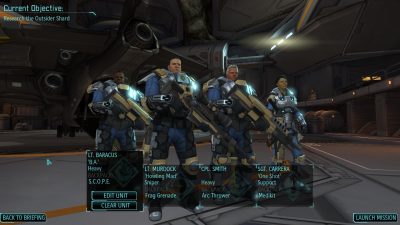
In 2001, Hasbro sold its video game IPs to Infogrames and closed its subsidiary, Hasbro Interactive, for good. In 2008, Infogrames also acquired all the holdings of the failing Atari company and then rebranded itself as Atari. To generate cash, the new Atari began to sell off its wholly-owned IPs to other companies. Atari sold the X-COM IP to Take Two Interactive which then transferred the IP to its subsidiary, 2K Games. 2K Games then assigned the development responsibilities to its subsidiary, Firaxis. Ironically, Firaxis had been founded by Sid Meier, Jeff Briggs and Brian Reynolds in 1997 after they left MicroProse in 1996. X-COM had finally found its way back to its first and spiritual home.
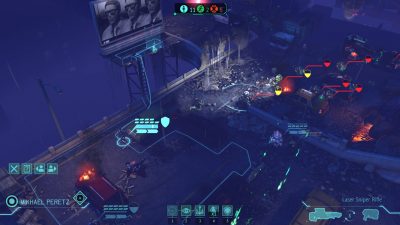
Jake Solomon was a charter member of the “Cult of X-COM” . While in high school he played the game for hours and had UFOpedic-level knowledge of the details of the franchise. He studied computer science and software engineering at university with the single goal of creating a new XCOM game (the hyphen now officially gone).
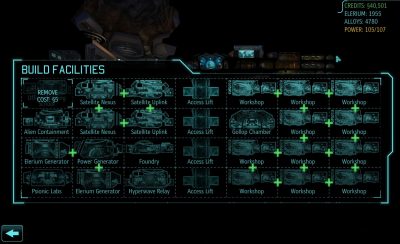
Solomon was hired right out of college by Firaxis. The legendary game developer, Sid Meier, took Solomon under his wing and Solomon became Meier’s in-house troubleshooter. At this same time, every time a discussion of which game was next in line for development, Solomon advocated for an XCOM reboot. In 2003 he had the chance to develop a rebooted XCOM prototype, even though Firaxis did not yet have the IP. However, after six months of work, Solomon failed miserably. Solomon later called the prototype “awful”.
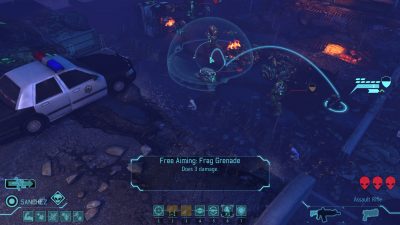
Five years later Solomon was given another chance. The game that would become XCOM: Enemy Unknown went into development in 2008 with a huge budget and a team of at least fifty people. All team members were required to complete the original 1994 version of the game before starting to work on the reboot. Further, the designers created a board game version of the game to capture the right “feel”. Although the game was the first one Firaxis produced that did not have Sid Meier’s name over the title, Meier was very involved, through Solomon, in the game’s development.
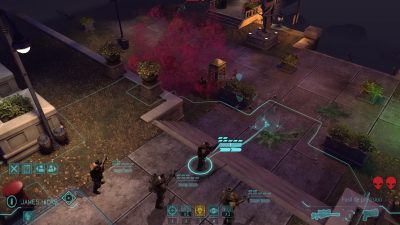
After a year of hard work, Solomon and team produced a demo video. After receiving lots of comments from other Firaxis employees about the demo, Solomon and his team realized that they had squandered a year creating a game that would only appeal to the hardest of hardcore fans of the original game and no one else. So, they started over. The team took three more years to complete the game.
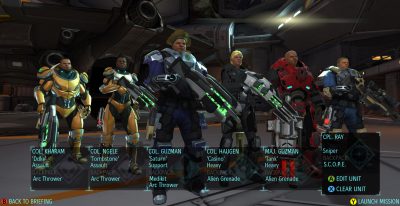 XCOM: Enemy Unknown was released 9 October 2012 for Microsoft Windows, PlayStation 3, and Xbox 360. It was called a “a reimagined remake” of the 1994 original. Set in 2015, the game plays much like the 1994 version, but with much upgraded graphics, user interface, game play, and was called: “respectful of Julian Gollop’s 1994 turn-based strategy classic, but not reverential.”
XCOM: Enemy Unknown was released 9 October 2012 for Microsoft Windows, PlayStation 3, and Xbox 360. It was called a “a reimagined remake” of the 1994 original. Set in 2015, the game plays much like the 1994 version, but with much upgraded graphics, user interface, game play, and was called: “respectful of Julian Gollop’s 1994 turn-based strategy classic, but not reverential.”
The game was critically acclaimed. Many reviewers commented on the game’s replayability, addictiveness, depth, and proper degree of difficulty. Electronic Gaming Monthly stated that “that XCOM: Enemy Unknown is a phenomenal remake … The developer hasn’t just managed to capture the spirit of the original; they’ve also tweaked, trimmed, and innovated enough to deliver the freshest, most engaging strategy game in recent memory, if not ever.” Another reviewer called the game play compulsive. GameSpy, GameTrailers, Giant Bomb, Kotaku, MTV, and NowGamer named it “Game of the Year” for 2012 while PC Gamer awarded it “Strategy Game of the Year.”
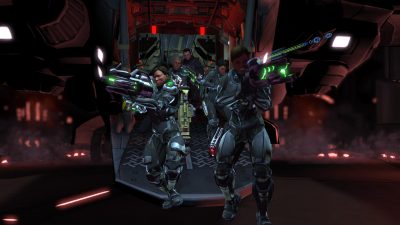
This critical praise translated into sells as well. One report has 100,000 units of the PC version alone sold in in just the first month of release; That number does not count console version units, or digital downloads. Of course, this kind of reception guaranteed the production of a sequel.
